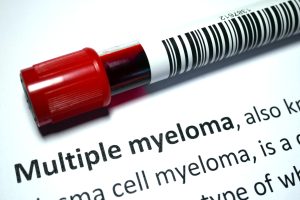
24 RCCA Physicians Named to 2025 Castle Connolly ‘Top Doctors’ List for Exceptional Cancer Care
A cancer diagnosis can be frightening. An individual may worry about how, or if, they will get better. The future becomes unclear and the strain
HIPAA Alert: Potential Data Breach Learn More
Questions on Oncology, Hematology and/or Infusion Clinical Services due to COVID-19 Crisis – CALL 833-698-1623
Important Information for Our Patients Regarding the Coronavirus.
RCCA Providing Area Cancer Patients with Access to Care During Coronavirus Outbreak
RCCA Offering Patients Virtual Visits During Coronavirus Pandemic
Colon cancer is one of the most prevalent cancers in the United States, with more than 106,000 new cases anticipated in 2024, the American Cancer Society says. But even though colon cancer is so common, many misconceptions surround the disease.
Regional Cancer Care Associates (RCCA) is a trusted provider of cutting-edge treatments for many cancer types, including colorectal cancer. RCCA’s expert, experienced medical oncologists employ the latest evidence-based therapies to treat patients with solid tumors, hematologic malignancies, and non-cancerous blood disorders at more than 20 locations in New Jersey, Connecticut, Maryland, and the Washington, D.C., area. Here, RCCA experts set the record straight regarding colon cancer myths and facts, so that you have the most accurate and up-to-date information and can make informed decisions concerning your health.

Here are some of the most common misconceptions surrounding colon cancer:
Fact: Colonoscopies play a critical role in preventing colon cancer by enabling physicians to identify and remove pre-cancerous polyps. The outpatient procedures also are key to the early detection and treatment of colon cancer. A 2023 study in the journal Nature suggests that with every 1,000 colonoscopies performed, 28 lives are saved. However, some people are reluctant to undergo a colonoscopy because they believe the procedure is unsafe. Although colonoscopy carries some risks – as does any medical procedure – colonoscopies have been shown to be to be both effective and safe.
Fact: Many people also fear colonoscopies are painful. However, colonoscopy patients generally receive sedation administered by an anesthesiologist, so they typically feel no discomfort during the procedure.
Fact: Colonoscopy is the gold standard for colon cancer screening, but it is not the only option. Other types of colon cancer screenings include:
While at-home stool tests may be an alternative to more invasive screening methods for certain patients, the tests typically need to be done every 1 to 3 years. And if the results are suspicious, a colonoscopy may still be needed.
Fact: The options for treating colon cancer have expanded dramatically in recent years. While surgery remains a mainstay of treatment, many – if not most – patients receive more than one type of treatment to optimize their outcomes. The different interventions and therapies typically are sequenced, with – for example – surgery followed by chemotherapy or perhaps immunotherapy. Beyond surgery, other approaches used to treat colon cancers include:
Decisions about which treatments are best for a particular patient are based on factors including the person’s overall health and the type and extent of his or her colon cancer.
Fact: Although colon cancer is most commonly diagnosed in older adults, rates of colon cancer in patients younger than 50 years of age have nearly doubled since 1990.
Colon cancer develops when cells in the lining of the colon grow out of control. These abnormal growths are called polyps, some of which can turn into cancer over time. Not all polyps become cancerous. The likelihood of a polyp turning into cancer depends in part on the type of polyp. The two main types of polyps are:
The lifetime risk of developing colon cancer is about 1 in 23 for men and 1 in 25 for women. Each person’s risk is different and depends on risk factors such as:
Age is a significant risk factor. Nearly 90 percent of colon cancer cases are reported in patients older than age of 50. On average, men with colon cancer are diagnosed at age 68, while the average age of diagnosis for women is 72.
Ethnic background is another significant risk factor, although the reason is unclear. Black people are about 20 percent more likely to develop colon cancer than people from most other ethnic groups.
Colon cancer also is one of the leading causes of cancer-related deaths among Black individuals, who are 40 percent more likely to succumb to the disease than people from most other racial/ethnic groups.
A person with a family history of colon cancer has an increased chance of also developing the cancer. Nearly 1 in 3 patients with colon cancer is related to someone who also has been diagnosed. Someone with a first-degree relative (parent, sibling, or child) with colon cancer faces an even higher risk of developing the disease.
Patients with a personal history of colon cancer are more likely to develop the cancer again. A previous diagnosis of colon cancer or other kinds of cancers increases the risk of recurrence.
Eating high amounts of red meat (beef, pork, lamb, and liver) and processed meats (hot dogs, bacon, jerky, and deli meats) raises the risk of developing colon cancer. By contrast, eating a well-balanced diet that includes plenty of fruits, vegetables, and whole grains can reduce the risk.
Smoking is most commonly associated with lung cancer, but it also has been linked to other types of cancer, including colon cancer. Regular smokers are more likely to develop colon cancer than people who do not smoke. Excessive alcohol consumption also increases the risk.
Being overweight and inactive increases the risk of colon cancer. By contrast, regular exercise and remaining at a healthy weight can help lower the risk.
Patients seeking reliable information regarding colon cancer and other types of cancer should turn to the oncology and hematology team at RCCA. In addition to offering cutting-edge, evidence-based treatments, RCCA’s expert hematologists and oncologists aim to educate everyone under their care. Patients receive the most accurate information backed by the latest scientific data and evidence-based treatment guidelines.
RCCA has 22 community-based, conveniently located treatment centers throughout New Jersey, Connecticut, Maryland, and the Washington, DC area. Contact RCCA today to schedule an appointment.
For more information or to schedule an appointment,
call 844-346-7222. You can also schedule an appointment by calling the RCCA location nearest you.

A cancer diagnosis can be frightening. An individual may worry about how, or if, they will get better. The future becomes unclear and the strain

Multiple myeloma (MM) is a rare type of blood cancer that often develops without early symptoms, making awareness of risk factors essential. Regional Cancer Care

A cancer diagnosis can bring a wide range of emotions, from fear and stress to sadness and hope. These feelings are a natural part of

Regional Cancer Care Associates is one of fewer than 200 medical practices in the country selected to participate in the Oncology Care Model (OCM); a recent Medicare initiative aimed at improving care coordination and access to and quality of care for Medicare beneficiaries undergoing chemotherapy treatment.